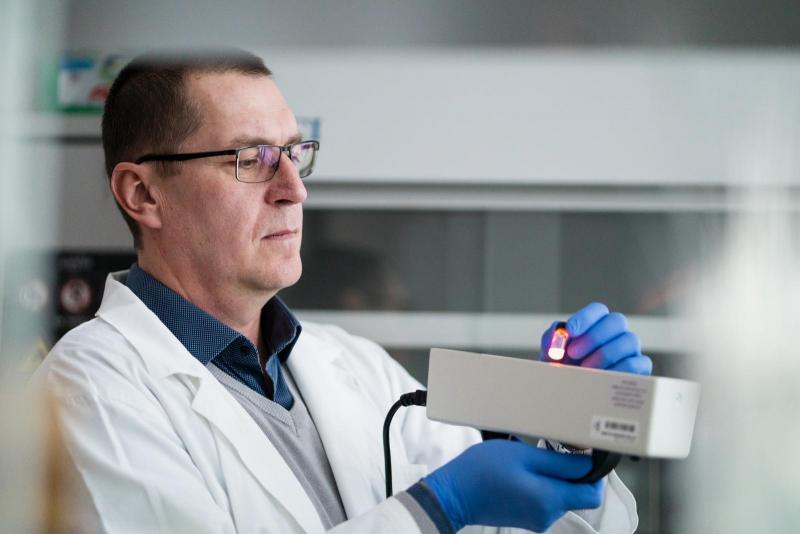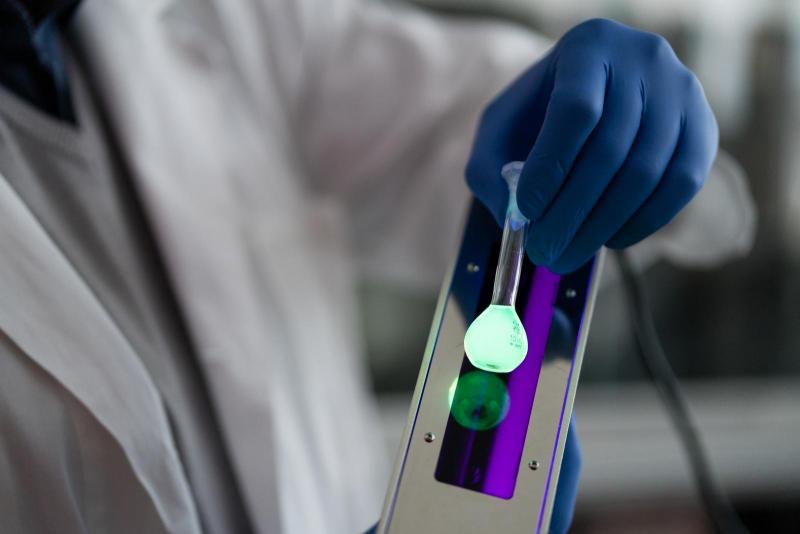Topic
It is necessary to join a working network of international contacts for scientific work

Jozef Krajčovič from the Institute of Chemistry and Environmental Protection Technology of the Faculty of Chemistry BUT has specialized in organic chemistry and organic synthesis since his student years. During his stay at the University of Bari last year, a broader foundation of international cooperation was established, which today connects BUT with Italian and Austrian universities and has a promising future.
Jozef Krajčovič divides his work fairly between students and research, and in recent years more and more on an international scale. The impetus for more intensive foreign cooperation last year was a one-year internship at the University of Bari, which was made possible thanks to the MEMOV (International mobility of research and administrative staff) mobility project. "We have very good relations with both the Johannes Kepler University in Linz and the Italian Università degli Studi di Bari Aldo Moro. There I worked in the group of Professor Gianluca Farinola, who, among other things, is currently the president of the Italian Chemical Society. In this context, the university is not so important, but above all the joint research projects related to the activity that we solve in my research group and across other groups at our faculty," Krajčovič explains.

Broadly speaking, his research deals with organic electronics. "We work with organic materials that are capable of carrying some functionality. Polymeric materials based on organic molecules do not behave as insulators, they are semiconductors. This discovery won the Nobel Prize in 2000 and we continue to develop this idea," the researcher explains, who himself has been working on conductive polymers since 1997. As he reveals, bio-organic electronics is currently a hot topic. "Here, semiconductors play the role of sensors and are able, among other things, to monitor human body functions. When "smart" technology is involved, it is conceivable that the doctor would have information immediately at hand. We also work with systems that are capable of solving neurodegenerative diseases. These are platforms that can stimulate the brain - they are printed systems that are also biodegradable," Krajčovič outlines the research vision.
The Italian part of the research is largely focused on biological systems, mainly on microalgae. “Italy is surrounded by the sea and has many universities with top-level chemical and biological materials research, so the network there is very effective. Italians are very creative and work on topics that we can never develop here, but thanks to the network we can use the infrastructures that other universities have and together create one common team. Part of the things that are synthesized in Bari are sent to us and we can finalize the products and move them on, and vice versa, we move the molecules from other issues that we prepare to Bari, where they are then finalized and tested," Jozef Krajčovič explains.
As a part of the Institute of Chemistry and Technology for Environmental Protection, his research group, in which mainly PhD students and postdocs are involved, naturally also deals with "green chemistry". "We introduce innovative procedures to reduce the amount and toxicity of solvents in organic syntheses or solvent-free systems. Another topic that is well open to us is the use of organic high-performance pigments for applications in advanced photonics, such as field-controlled transistors or organic photovoltaic systems," Krajčovič calculates. His group uses nature-inspired organic molecules and various types of bio-materials to produce original "sustainable" advanced systems for bio-sensors, artificial retinas and the like. "Our goal is to create structures similar to those that occur commonly in nature and have specific functions. We can use organic chemistry to modify and adjust them for subsequent technological applications," Jozef Krajčovič says.
What he enjoys most about scientific work is creativity and research passion accompanied by the joy of new knowledge. "A great added value of this work is multidisciplinarity, which allows us to go beyond the normal horizons of our interest, as well as close contacts with a wide team of experts, in which each article has its place and plays an important role. Therefore, it is necessary to have an excellent network of contacts throughout the world. Here, the possibilities of effective cooperation are offered, especially for young ambitious students and scientists, who can join an international multidisciplinary team in the form of various programmes such as Erasmus, Erasmus+, workshops or short-term internships," Jozef Krajčovič concludes.
In high school, she devoted herself to making cosmetics. She has now come second in the business competition and she is preparing new products
Bone tissue carriers from 3D printer make bone regeneration more effective. Their formulations are being tested at FCH BUT
„Plastics will always be here, we just need to treat them differently," says the chemist Adriána Kovalčík, who has learned to face challenges
Cement production can be cheaper and more ecological thank to the recipe from FCH BUT
A lack of hay for horses inspired Joes Jančář to create a smart nutrition for plants